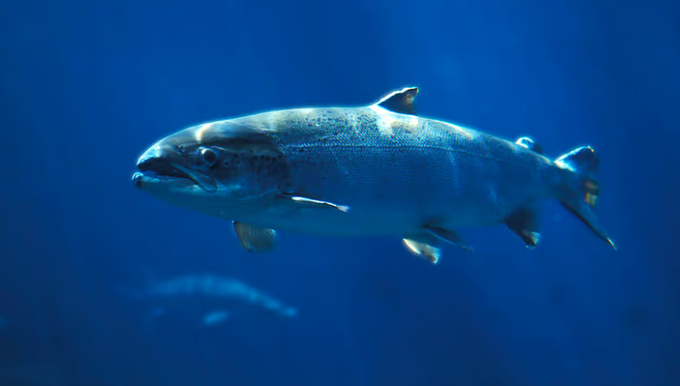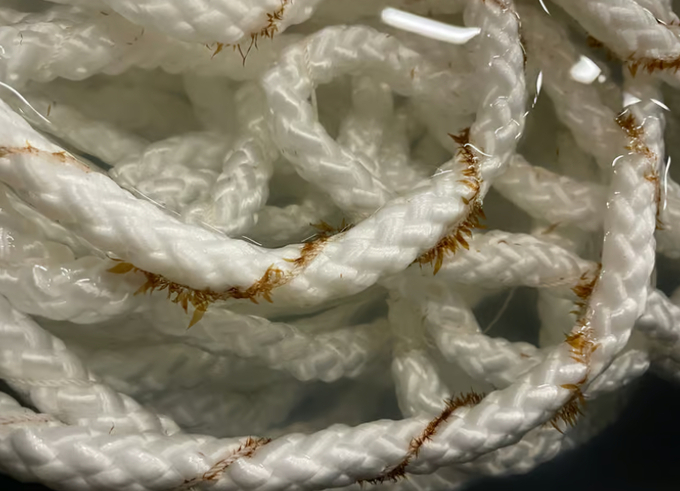June 3, 2025 | 07:06 GMT +7
June 3, 2025 | 07:06 GMT +7
Hotline: 0913.378.918
June 3, 2025 | 07:06 GMT +7
Hotline: 0913.378.918
A new farm is exploring a solution to that problem, by raising salmon and kelp in adjacent pens.

Waste produced by the salmon will provide nutrients to the kelp – which will in turn be used in salmon feed.
The experimental aquaculture operation is located in the municipality of Steigen, in Norway's Norland county. Norwegian fish farming companies Folla Alger and Cermaq are collaborating on the salmon aspect of the project, while the SINTEF Ocean research group is responsible for the kelp.
The farm consists of 24 net pens, anchored in the ocean near the shore. These pens are joined together in groups of four, and those six groups are in turn connected to one another in a line, forming a rectangle when viewed from above. The two groups at either end of the rectangle contain salmon, while the four in the middle contain kelp.

The kelp will be grown on ropes suspended in the pens.
The idea is that the soluble contents of the feces and uneaten food from the salmon pens will be largely taken up by the kelp, providing nutrients that may boost the seaweed's growth by up to 50%. This could be particularly important at times of the year when naturally occurring nutrient levels in the seawater are lower than average.
It is hoped that the salmon will also benefit from the arrangement. The health of the fish, and of their environment, will be monitored to see how and if this may be the case.
We're told that the harvested kelp will initially be used as a nutritional additive in livestock feed for land animals such as cows and pigs, although ingredients extracted from it should ultimately also find use in salmon feed.
Plans call for 1,500 tons (1,361 tonnes) of salmon and 100 tons (91 tonnes) of kelp to be produced in the first year of operation, with those numbers doubling for the second year. The project is scheduled to run for six years.
(SINTEF, Folla Alger)

(VAN) Vikas Rambal has quietly built a $5 billion business empire in manufacturing, property and solar, and catapulted onto the Rich List.

(VAN) Available cropland now at less than five percent, according to latest geospatial assessment from FAO and UNOSAT.

(VAN) Alt Carbon has raised $12 million in a seed round as it plans to scale its carbon dioxide removal work in the South Asian nation.

(VAN) Attempts to bring down the price of the Japanese staple have had little effect amid a cost-of-living crisis.

(VAN) Fourth most important food crop in peril as Latin America and Caribbean suffer from slow-onset climate disaster.

(VAN) Shifting market dynamics and the noise around new legislation has propelled Trouw Nutrition’s research around early life nutrition in poultry. Today, it continues to be a key area of research.

(VAN) India is concerned about its food security and the livelihoods of its farmers if more US food imports are allowed.